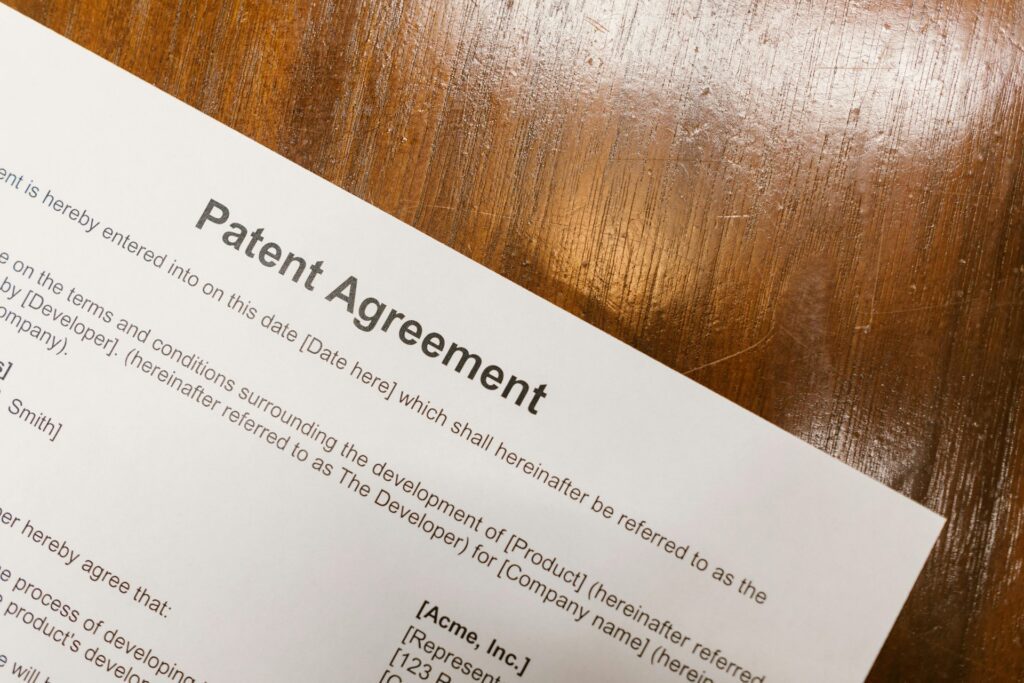Koh Samui, a tropical paradise in Thailand, has long captivated investors with its stunning beaches, lush landscapes, and booming real estate market. For many, owning property in this idyllic location is a dream come true. However, buying real estate in Koh Samui, particularly as a foreigner, requires careful navigation of Thailand’s property laws and regulations. The process can be complex, with legal and administrative hurdles that must be clearly understood. Ensuring you follow the legal procedures for buying real estate in Koh Samui is essential to protect your investment and ensure a smooth transaction.

In this guide, we’ll explore the key legal steps, from understanding ownership restrictions to contract negotiation and due diligence, so you can confidently embark on your real estate journey.
Understanding Foreign Ownership Laws in Thailand
Before diving into the purchase process, it’s essential to understand the legal restrictions on foreign ownership in Thailand. Thai law limits foreign nationals’ ability to own land outright, but there are ways to navigate these restrictions to invest in real estate.
Condominium Ownership for Foreigners
One of the most straightforward options for foreign buyers is purchasing a condominium. Under Thai law, foreigners are allowed to own condominium units as long as foreign ownership in the building does not exceed 49% of the total floor area. This makes condominiums in Koh Samui an attractive option for those looking to invest in property without dealing with land ownership issues.
When buying a condo, it’s essential to ensure that the foreigner quota in the building has not been exceeded and that the developer holds the required permits for foreign ownership. Conducting thorough due diligence is necessary to avoid legal complications down the line. This includes verifying the title deed, ensuring there are no outstanding debts on the property, and reviewing the terms of the sale with a legal expert. A clear understanding of the condo’s ownership structure and legal status will ensure a safe investment.
Leasehold Agreements
For those interested in buying land, one of the most common legal structures available to foreigners is entering into a leasehold agreement. Foreigners can lease land for up to 30 years, with the possibility of extending the lease for two additional 30-year periods. This gives foreign buyers the ability to effectively control the land without technically owning it, making it a popular choice for those looking to build villas or invest in larger properties in Koh Samui.
A leasehold agreement must be registered at the Land Office to be legally binding. It’s also recommended to have a qualified lawyer review the contract to ensure that it contains clear terms regarding lease extensions and the rights of the lessee. Foreign buyers should also confirm that the lease includes stipulations for renewing the lease and transferring rights to heirs or third parties, ensuring long-term security and control over the property.
The Role of a Lawyer in the Property Purchase Process
While it is not mandatory to hire a lawyer when purchasing real estate in Thailand, doing so is highly recommended, especially for foreign buyers unfamiliar with Thai property laws. A lawyer will act as your legal advisor, ensuring that the transaction is conducted legally and without any hidden risks. Their role in protecting your investment is crucial, as they guide you through the complexities of Thai real estate regulations, ensuring you have full clarity on each step of the process.
Due Diligence and Property Title Search
One of the most critical steps in the purchase process is conducting due diligence on the property. This includes performing a title search to verify the ownership history of the land and ensure that there are no legal disputes, encumbrances, or liens on the property that could jeopardize the purchase.
A lawyer will help you review the land title deed and confirm its validity. In Thailand, there are different types of land titles, and only certain types allow for full ownership rights. Ensuring that the property has a Chanote title (the most secure form of land ownership) is crucial to protecting your investment. A Chanote guarantees accurate boundaries and provides a clear legal framework for ownership. Your lawyer will also check if the land has access to public roads and utilities, as this can impact the value and usability of the property.
Reviewing the Sales Agreement
Another important role of a lawyer is to review the sales agreement between you and the seller. This contract outlines the terms of the sale, including the purchase price, payment schedule, and any conditions that must be met before the transfer of ownership. A well-drafted sales agreement ensures that both parties understand their obligations, helping to avoid any potential disputes later in the process.
Your lawyer will ensure that the agreement is fair and legally binding. They will also make sure that the contract protects your rights as a buyer and includes provisions for any necessary escrow services to manage the funds safely during the transaction. Escrow services provide an extra layer of security by holding the funds until all contractual conditions are met, ensuring that both parties fulfill their obligations before the property is officially transferred. Additionally, the lawyer will verify that the terms of payment and the handover process are clearly outlined, safeguarding you from any last-minute complications.

Navigating the Property Transfer Process
Once the due diligence is complete and the sales agreement has been signed, the next step is the property transfer process. In Thailand, property transfers are managed by the Land Office, and several administrative steps must be completed to finalize the transaction. This process ensures that the legal ownership of the property is officially transferred to the buyer.
Payment of Taxes and Fees
Both the buyer and seller are responsible for certain taxes and fees during the property transfer. These payments are required to complete the legal transfer at the Land Office. The main taxes and fees include:
• Transfer fee: Typically 2% of the property’s registered value, which is paid directly at the Land Office during the transfer process. This fee is often shared between the buyer and seller, depending on the sales agreement.
• Withholding tax: This tax is usually paid by the seller and is based on the property’s appraised value and the length of time the seller has owned the property. It can range from 1% to 3% depending on the specific circumstances.
• Stamp duty or Specific Business Tax: One of these taxes will apply based on the property’s ownership history. If the seller has owned the property for more than five years, stamp duty (0.5% of the registered value) is applicable. If the property is sold within five years, specific business tax (3.3%) will be charged.
A lawyer can help calculate these taxes and ensure that they are paid correctly to the appropriate authorities. Paying the right amount of taxes and fees is crucial to avoid any delays in the transfer process, and a legal professional will handle these details to ensure a smooth transaction.
Registering the Transfer of Ownership
The final step in buying real estate in Thailand is registering the transfer of ownership at the Land Office. Both the buyer and seller (or their legal representatives) must be present to complete this registration. The Land Office will issue a new title deed in the buyer’s name once all paperwork is completed, and the transfer fees and taxes are paid.
It’s essential to understand that ownership is not legally binding until the transfer has been officially recorded at the Land Office. Even if full payment has been made, the property is not considered yours until this step is completed. The new title deed will serve as your official proof of ownership and includes details about the land or condominium unit you’ve purchased.
Navigating the property transfer process can be complex, especially for foreign buyers, but with the assistance of a qualified lawyer, the process can be handled efficiently and correctly.
Financing Your Real Estate Purchase
While some buyers may choose to pay for their property in Koh Samui outright, others may seek financing options to facilitate their purchase. Foreigners can face challenges when securing loans from Thai banks, but there are still viable solutions available. Understanding the financing options will help you navigate the process and make a well-informed decision.
Financing Through Thai Banks
While foreigners are generally restricted from owning land in Thailand, they can own condominiums and potentially secure loans from certain Thai banks. However, these loans are often subject to stricter conditions compared to those offered to Thai nationals. Most Thai banks that do offer loans to foreigners only do so for condominium purchases, as these properties fall within the 49% foreign ownership quota outlined in Thai law.
To qualify for a loan, foreign buyers must typically meet several requirements:
• Proof of income from abroad or within Thailand.
• A valid visa with long-term residency status or work permits.
• A strong financial relationship with the bank, such as holding accounts with substantial funds.
It’s important to note that interest rates for foreign buyers are often higher than those available to Thai citizens. Additionally, the loan terms may be shorter, which could result in higher monthly payments. Although financing through Thai banks is possible, it may not be the most accessible or affordable option for every foreign buyer.
Developer Financing
One attractive alternative for foreign buyers is developer financing. Many real estate developers in Koh Samui, particularly those offering off-plan or newly constructed properties, provide their own financing options directly to buyers. This approach can be particularly beneficial for those who may not qualify for a traditional bank loan or prefer more flexible payment terms.
Developer financing typically includes:
• Lower down payments, often ranging from 10% to 30% of the property’s total value.
• Interest-free installment payments during the construction phase.
• Extended payment plans, allowing buyers to spread the cost of the property over several years.
This type of financing is generally more flexible and convenient than traditional bank loans, making it an attractive option for foreign investors. However, it’s crucial to carefully review the terms and conditions of any developer financing agreement. Interest rates may increase after the construction phase, and buyers must ensure they are working with a reputable developer to avoid any potential risks.
By exploring developer financing, buyers can achieve greater flexibility and affordability, making it an excellent solution for those looking to invest in Koh Samui real estate.

Protecting Your Investment
Purchasing real estate in Koh Samui is a significant financial commitment, and once the transaction is complete, safeguarding your property becomes essential. Protecting your investment ensures that it remains secure and retains its value over time. There are several key steps you can take to maintain and protect your property.
Property Insurance
Acquiring property insurance is one of the most effective ways to protect your investment. In Thailand, you can secure insurance coverage for various risks, including natural disasters like floods or storms, theft, fire, and even third-party liability in case of accidents occurring on your property. This comprehensive coverage offers peace of mind, ensuring that you won’t be left to bear the financial burden of repairs or replacements in the event of damage.
In Koh Samui, where tropical weather conditions like heavy rains and storms are frequent, having insurance is particularly crucial. It’s advisable to choose an insurance provider familiar with the island’s unique risks and climate. By carefully reviewing policy details, you can ensure that your property is covered for all potential hazards, making it a wise move to protect both your physical asset and your financial stability.
Appointing a Property Manager
For those planning to use their Koh Samui property as a rental investment, appointing a reliable property manager is essential to protecting and maintaining your investment. A property management company or a dedicated property manager can handle the daily responsibilities of maintaining the villa, managing tenant inquiries, and ensuring the property remains in excellent condition.
A property manager can oversee regular maintenance checks, deal with repairs, and manage the logistics of rental agreements. This is particularly beneficial for foreign owners who may not reside in Thailand year-round or those who want a hassle-free approach to earning rental income. With professional management, your property remains well-maintained, and rental income is maximized without requiring your constant involvement.
By appointing a property manager and securing the right property insurance, you can protect your Koh Samui real estate investment for the long term, ensuring both financial security and peace of mind.
Common Legal Pitfalls to Avoid
While buying property in Koh Samui offers great investment opportunities, there are several common legal pitfalls that can complicate the process for foreign buyers. Being aware of these challenges can help you navigate the purchase smoothly and protect your investment.
Ignoring Foreign Ownership Laws
One of the biggest mistakes foreign buyers make is overlooking Thailand’s strict foreign ownership laws. Foreign nationals are not allowed to own land outright in Thailand, and attempting to bypass these restrictions through unofficial agreements or nominee structures is highly risky. These arrangements are illegal under Thai law, and the authorities can take legal action against such practices, which could lead to the forfeiture of the property.
It’s crucial to work within legal frameworks, such as buying condominiums, entering into leasehold agreements, or establishing a legitimate Thai company to hold the land. Consulting with a qualified lawyer ensures that you stay compliant with Thailand’s foreign ownership rules and avoid legal complications.
Failing to Conduct Due Diligence
Another critical mistake is failing to perform adequate due diligence before purchasing a property. Skipping or rushing through this process can lead to costly consequences down the line, such as discovering that the property has unresolved disputes, lacks proper building permits, or has an invalid title deed.
Due diligence includes verifying the land’s legal status, ensuring there are no existing liens or legal claims, and confirming that the seller has the legitimate right to transfer ownership. Additionally, inspecting the land title to confirm it’s a Chanote title, which offers full ownership rights, is essential. Thorough due diligence ensures that your investment is secure and free from future legal challenges.
Heveatecture’s Expertise in Navigating Real Estate in Koh Samui
When investing in real estate in Koh Samui, it’s important to partner with professionals who understand both the legal intricacies and the unique challenges of property development in Thailand. Heveatecture has extensive experience in guiding clients through the complexities of real estate acquisitions, offering tailored support that aligns with local laws and regulations.
Tailored Guidance for Foreign Buyers
Understanding Thailand’s foreign ownership laws can be daunting, especially for those unfamiliar with the legal framework. Heveatecture takes pride in assisting foreign investors by offering detailed consultations on the different legal structures available, whether it’s purchasing a condominium under the foreign quota or establishing a secure leasehold agreement for villa or land ownership. Our team works closely with legal experts to ensure that every step of the purchase is transparent, safe, and fully compliant with Thai property laws.
Holistic Approach to Property Investment
Beyond legal considerations, Heveatecture offers a holistic approach to property investment in Koh Samui. Our services don’t stop at acquisition; we ensure that the development process, from planning to execution, is seamless. By managing everything from land inspection to architecture and construction, we help our clients build their dream properties while safeguarding their investment. Through this process, we aim to create spaces that respect both the natural beauty of Koh Samui and the personal vision of our clients.

By combining our in-depth local knowledge with a global understanding of property investment needs, Heveatecture ensures that your real estate journey in Koh Samui is as smooth and rewarding as possible.
Conclusion
Buying real estate in Koh Samui can be a profitable and rewarding venture, but it’s essential to approach the process with a clear understanding of the legal and administrative steps involved. Whether it’s adhering to foreign ownership laws, conducting due diligence, or securing the right legal assistance, each phase of the purchase is critical to ensuring a successful outcome.
By being diligent, working with experienced professionals, and understanding the legal landscape, you can avoid common pitfalls and protect your investment. With the proper steps in place, you’ll enjoy the financial rewards and personal satisfaction of owning property in one of Thailand’s most beautiful tropical destinations.
10 FAQ on Buying Real Estate in Koh Samui
Foreigners cannot own land outright in Thailand but can lease it for up to 30 years or own property through a condominium purchase.
Foreigners can own condominium units or lease land under a leasehold agreement. Setting up a Thai company for land ownership is also an option but requires careful legal consideration.
A Chanote title is the most secure form of land ownership in Thailand, providing full ownership rights.
While not required by law, hiring a lawyer is highly recommended to navigate the legal process, conduct due diligence, and ensure a smooth transaction.
Taxes include a 2% transfer fee, withholding tax, and either stamp duty or specific business tax, depending on the seller’s ownership duration.
The property transfer process typically takes a few days, but it can vary depending on the complexity of the transaction and the parties involved.
Foreigners may be able to get a mortgage for condominium purchases from certain Thai banks or through developer financing options.
The transfer of ownership must be registered at the Land Office, where both buyer and seller (or their representatives) sign the necessary documents. The new title deed will then be issued in the buyer’s name once the taxes and fees are paid.
Failing to perform due diligence can result in purchasing property with unresolved legal disputes, ownership issues, or land encumbrances. This can lead to costly legal battles or the loss of your investment.
Yes, foreign buyers can rent out their property in Koh Samui, particularly if it’s a condominium or a villa under a leasehold agreement. However, it’s essential to comply with local rental regulations, including paying the appropriate taxes.
